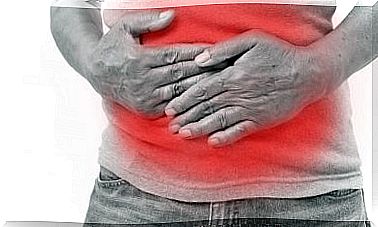Intestinal Health: Simple Tips For Your Diet
The intestine fulfills an indispensable function in our organism. The absorption of all the nutrients we eat basically depends on this organ . Therefore, it is essential to take care of intestinal health.
The intestinal walls capture water, sugars, minerals, vitamins, as well as products that help us digest proteins, fats and carbohydrates.
How to take care of my intestinal health?
The way we eat will facilitate its proper functioning, and a balanced diet will undoubtedly help us to carry out all its functions in an adequate and healthy way.
In addition to a proper diet, we must also take into account the weight of emotions in our body. Stress situations directly affect the health of our intestines, hence we also have to take it into account.
It is very easy to take care of intestinal health. In addition to being tasty, the following foods that we propose are very easy to find and consume. Take note:
Foods with Beta-carotene

They are essential for the good condition of the skin and mucous membranes, in addition to exerting an antioxidant action. Beta-carotene is the substance responsible for this power and is included in those yellow or orange fruits and vegetables.
They also contain flavonoids that, once ingested, are transformed in the liver and intestine into Vitamin A. These flavonoids have a crucial anti-inflammatory character for health, according to the following study.
Foods with Vitamin C
It is a substance necessary to form collagen in cell membranes. If we have a lack of these nutrients, it is possible that the intestinal mucosa becomes more fragile as stated in the journal “Cellular Physiology and Biochemistry”.
Hence the need to consume them to have these necessary enzymes that will promote the digestion of food. Foods rich in vitamin C include strawberry, papaya, kiwi, and mango.
Foods rich in vitamin E and Omega-3 fats

These nutrients prevent oxidation and protect cell membranes. Omega-3 fatty acids offer elasticity and adaptability to intestinal cell membranes.
These fatty acids are very important because, from them, series 3 prostaglandins are produced in our body; compounds that control inflammations according to the following scientific article study. You can consume both foods of animal and vegetable origin. Among them:
Animal origin
- Blue fish
- Salmon
- Codfish
- Sardines
- Yolk
- Lobsters
- Crabs
Vegetable origin
- Lettuce
- Soy
- Spinach
- Brussels sprouts
- Pineapples
- Almonds
- Walnuts
- Sunflower seeds
- Peanuts
- Basil
- Oregano
- Dried apricots
Yogurts, kefir, and fermented dairy
In addition to being foods with excellent nutritional qualities, they act directly on the intestinal flora promoting the development of beneficial bacteria for the body and intestinal health. They are digested very easily and their nutrients are well assimilated at the intestinal level.
In fact, more and more positive properties of fermented dairy consumption are being discovered. Scientific articles link a regular consumption of these products with proper health.
Fiber-rich foods for gut health

These foods of plant origin facilitate the transit of enzymes through the stomach and the small intestine, thus reaching the colon without degradation.
In the colon, intestinal bacteria ferment, thus favoring the balance of the intestinal flora. In addition, it thus provides innumerable benefits throughout the body.
In the same way, it increases the feeling of satiety, helps make bile more soluble and helps regulate the level of glucose and cholesterol in the blood. Of course it also prevents constipation. The journal “Alimentary Pharmacology & Therapeutics” shows the properties of fiber on intestinal health.
Among the foods rich in fiber are whole grains, legumes, vegetables, fruits and nuts:
Cereals
- Integral rice
- Birdseed
- Oatmeal
- Oat bran
- Rye
- Barley
Fruit
- Strawberry
- Plum
- Pear
- Orange
- Grapefruit
- Lemon
- Apple
- Raspberry
Vegetables and greens
- Broccoli
- Pepper
- Beet
- Potato
- Artichoke
- Cucumber
- Asparagus
- Garlic
- Pumpkin
- Yucca
- Tomato
As we can see, the treatment to take care of the health of our intestines is really simple and practical. It does not require more than a little will, in addition to properly selecting everything that we put every day on our plate.
And remember, in addition to a proper diet, avoid stressful situations, properly manage emotions so that your body does not suffer. It is up to you to live healthy. It is easy to try.









